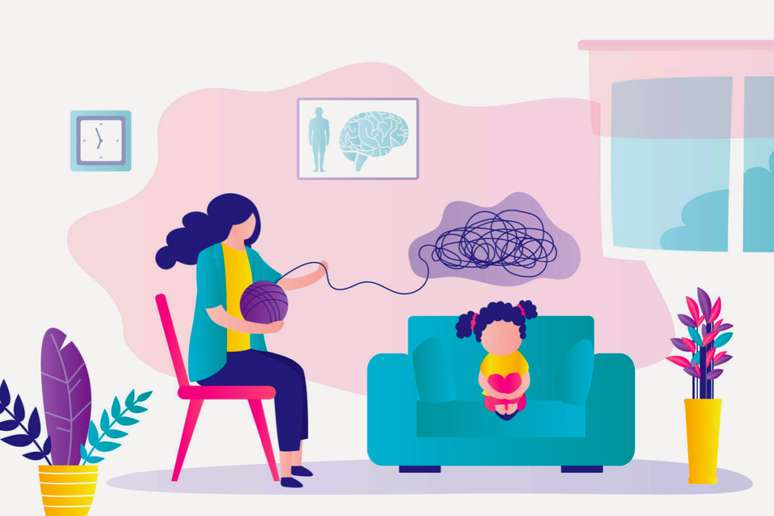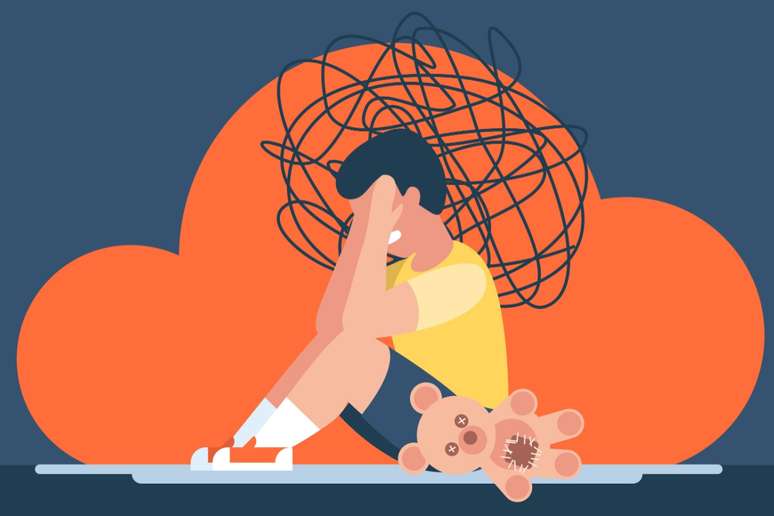The psychologist explains how continuous exposure to violence can affect children’s emotional and psychological health
Living in areas of war and conflict is a brutal reality for countless children around the world. Constant exposure to violence and fear in contexts like this leaves deep scars on children’s emotional and psychological development. Recent conflicts in the Gaza Strip and Ukraine, for example, have reignited global concern.
Today there are five active conflicts in the world that together have claimed the lives of hundreds of thousands of people, which are reported in the news and social media every day. To give you an idea, according to data collected by the news agency Al Jazeera (state television broadcaster of the Qatari monarchy), the war between Israel and the extremist group Hamas has caused over 11,000 confirmed deaths.
Emotional and psychological consequences
Wars cause profound emotional consequences, such as the development of trauma, fear, anxiety, depression and isolation. Children, often unable to understand the complexity of conflicts, find themselves facing a heavy emotional burden, which can profoundly affect their self-esteem, confidence and sense of security.
For psychologist Vanessa Gebrim, specialist in clinical psychology at PUC-SP, these stressful situations can also affect children’s learning. “Stress alters brain chemistry and areas where learning functions, such as memory and reasoning, leading to a regression in academic performance,” she reveals.
Sequelae of exposure to violence
According to the psychologist, the fear of dying, of leaving home or even of attending school becomes a predominant part of their life. Nightmares and insomnia These are common symptoms, leaving them in a state of constant hypervigilance.
This ongoing exposure to violence and fear not only affects children’s present, but leaves a lasting impact on their future as well. “They can leave consequences, such as post-traumatic stress disorder (PTSD) which brings symptoms such as insomnia, irritability, mood changes, agitation, anxiety, depression, alcohol abuse and even suicide,” she warns.
These mood changes the areas of conflict are directly linked to the way our brain handles these impulses. “Every time a violent situation occurs, which causes stress, a hormone called cortisol is released, which ends up altering areas related to learning, memory and reasoning,” he explains.

Impact of technology on mental health
Wars also affect those who are not physically involved: even children who follow conflicts on social media or on television can be psychologically affected. “Following profiles on screens can trigger feelings of fear, anguish, sleep disturbances and anxiety. This reaction is aggravated in children because they are not used to this type of brutal violence and the existence of deaths,” she indicates.
Importance of psychological support
Ideally, there would be an effort to preserve the mental health of these people, a people traumatized by a war needs a lot of psychological support to overcome the situation. trauma experienced. In these cases psychotherapy is very effective.
“It is necessary to strengthen humanitarian aid programs, such as support for mental health programs, as well as promote international cooperation to avoid wars. We live in a society with a high level of mental health problems. The risk of developing mental disorders and the health problems are enormous”, concludes Vanessa Gebrim.
By Isabelle Rocha
Source: Terra
Ben Stock is a lifestyle journalist and author at Gossipify. He writes about topics such as health, wellness, travel, food and home decor. He provides practical advice and inspiration to improve well-being, keeps readers up to date with latest lifestyle news and trends, known for his engaging writing style, in-depth analysis and unique perspectives.









